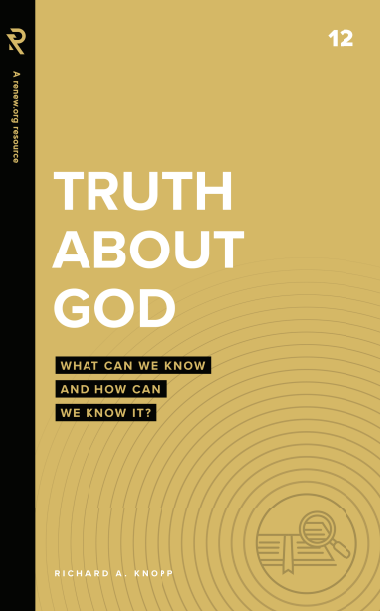Exvangelicals and the Exodus
Spiritual Lessons for Deconstructing Faith
There’s a migration unfolding across Western Christianity. You can hear it in the discussions on podcasts, the honesty of social media posts, the long pauses in once-familiar prayers.
They call it deconstruction: a word that sounds like demolition but often hides something gentler, something more sacred. For many, this journey begins not with rebellion but with heartbreak. It starts when the old answers stop fitting, when the inherited certainties of childhood faith crumble beneath the weight of reality, trauma, or hypocrisy.
This exodus from evangelicalism (or from institutional religion more broadly) isn’t unlike Israel’s flight from Egypt: bewildering, liberating, dangerous, and holy. To leave behind a spiritual home, even one that has wounded you, is never easy. The wilderness between “what was” and “what’s next” stretches wide and dry. But what if this wilderness, this long wandering called deconstruction, isn’t a failure of faith but an invitation into more profound knowing? What if doubt isn’t the enemy of belief, but its refiner?
The mystics have known this path for centuries. Long before deconstruction became a hashtag, they spoke of unknowing as the narrow gate to divine union. They too wrestled with silence, contradiction, and loss. They too found that the God who seemed to vanish in the dark was in fact waiting there, hidden in mystery.
The Exodus of the Heart
Every generation faces its own Red Sea: the impossible crossing between what it once believed and what it now knows. For exvangelicals, this crossing often means confronting the idols of certainty, control, and triumphalism that have shaped much of modern Western Christianity.
It means naming the pain of betrayal when institutions protect power over people, when theology is used as a weapon, when faith is tangled with nationalism or abuse. It means daring to ask, “Is this really who God is?”
That question, though painful, is profoundly biblical. Abraham argued with God. Jacob wrestled. Job protested. Mary asked how it could be possible. Even Jesus cried out, “My God, my God, why have you forsaken me?” Doubt and lament aren’t foreign intruders to faith; they’re the heartbeats of faith that refuses to lie.
The mystics called this threshold “the dark night of the soul.”[1] St. John of the Cross, imprisoned by his own religious order, wrote that God sometimes withdraws every trace of light so that our love can be purified. We cling to doctrines, feelings, and experiences until they vanish. Then, stripped of spiritual comfort, we are forced to love God for God’s own sake, not for what God gives us. It’s a terrifying freedom. But it’s also the beginning of maturity.
Deconstruction, seen through this mystical lens, isn’t the end of belief. It’s the death of illusion. It’s what happens when faith sheds its borrowed garments and learns to stand naked before mystery.
“We may fear that deconstruction is the death of faith. But it very often isn’t. Deconstruction is often the death of illusion. It’s the soul’s way of shedding what can’t hold divine love and mystery.”
The Cloud of Unknowing
In the 14th century, an anonymous English mystic wrote The Cloud of Unknowing, a guide for those who longed to know God but found themselves engulfed in doubt. His advice was shocking in its simplicity: “Give up trying to understand God with your mind. Love can reach where thought can’t.”[2]
He described the soul as standing beneath a vast, dark cloud: a space where reason falters and old images of God dissolve. But this darkness isn’t the absence of God; it’s the excess of God. The light is too bright for our eyes. The truth is too vast for our concepts.
“God’s silence isn’t absence. It’s the excess of presence: too vast for our small words to hold.”
For those deconstructing faith, this is good news. You aren’t lost; you are being reoriented. The old certainties aren’t being destroyed but transfigured. God has not abandoned you; God is dismantling the idols that can’t hold divine love.
Simone Weil, the 20th-century philosopher-mystic, once said that the absence of God is the most present thing we can feel.[3] She called this absence “a form of divine attention.” God, she believed, withdraws so that we might learn to love what is real, not what is imagined.
In that space of silence, everything becomes prayer: grief, rage, confusion, even disbelief. The cloud of unknowing invites us to stop demanding clarity and to start learning how to wait.
The Idols That Must Fall
Every true faith journey involves demolition. The prophets knew this. Before they could rebuild the temple, they had to tear down the high places. Before resurrection, there must be crucifixion.
For many exvangelicals, the idols that must fall aren’t golden calves but systems of control disguised as certainty:
The idol of power: when faith becomes a tool of domination rather than liberation.
The idol of nationalism: when God is draped in a flag and used to bless violence.
The idol of purity: when love is reduced to moral policing and shame.
The idol of certainty: when mystery is feared more than sin.
These idols masquerade as holiness but deform the soul. The mystics warn that God must shatter every false image before we can see the Real. Deconstruction, then, isn’t destruction; it’s deliverance.
“To leave behind the gods of control, nationalism, certainty, purity, and power isn’t to lose faith. We shouldn’t assume that. Instead, it’s to find God again in freedom and cruciformity.”
To leave these idols behind isn’t to leave God; it’s to leave what we mistook for God. As the desert fathers and mothers taught, detachment is the path to freedom. “The one who has died to everything,” they said, “has already risen.”
Between Ruin and Revelation
There is a strange beauty in the ruins of a faith once tightly held. When the scaffolding collapses, when prayer feels hollow, when scripture stings instead of soothes, the temptation is to despair. But the mystics recommend “staying in the ruins.”
Moses met God in a bush that burned but wasn’t consumed. Elijah heard the divine voice not in the earthquake or fire, but in a thin silence. Christ’s resurrection came only after the silence of Saturday. In the same way, the death of old faith can be the soil of a new encounter.[4]
Here, the mystic and the exvangelical stand side by side. Both know the ache of absence and the disorientation of starting over. Both learn that God isn’t contained in the language of the past.
Deconstruction isn’t unbelief; it’s the refusal to live with half-truths. It’s the courage to let faith be reborn in truth rather than in fear.
But what comes after?
Reconstruction: The Long Obedience of Love
If deconstruction is the exodus, then reconstruction is the promised land. But this land isn’t milk and honey; it’s humility, simplicity, and compassion. It’s a faith stripped of triumphalism and reborn in tenderness.
Reconstruction doesn’t mean returning to certainty. It means learning to live with trust. It’s the slow, sacred work of rebuilding a house for the soul on a firmer foundation: where mystery isn’t a threat but a friend, where questions aren’t punishments but invitations.
This is where mysticism offers its most profound wisdom: faith isn’t assent to propositions but union with the Living God. It isn’t a fortress of answers but a river of love. To reconstruct after deconstruction is to shift from defending beliefs to embodying grace.
St. John of the Cross wrote, “In the twilight of life, we will be judged by love alone.”[5] The measure of mature faith isn’t doctrinal precision but compassionate presence. When belief and doubt can coexist within love, you have entered what the mystics called the unitive way: the stage of faith where everything belongs, because everything is held in God.
Here, paradox becomes prayer. You can lament and adore, protest and praise, wrestle and rest: all at once. You can hold scripture not as a weapon but as a living word that reveals and unsettles. You can speak of God without pretending to have a complete understanding.
“Mature faith isn’t certainty restored; it’s trust rediscovered. Such faith is the humble confidence that Christ’s way, truth, life, and love are enough.”
This is the mature faith that rises from the ashes of deconstruction: not a return to the past, but a deeper surrender to the mystery of love.
The Church Beyond the Wilderness
What does this mean for the church? It means that the wilderness wanderers must be welcomed, not shamed. The deconstructors aren’t enemies of faith; they’re often its prophets. Their questions reveal where the church has grown rigid, where theology has become ideology, where the Spirit has been domesticated.
Communities that fear deconstruction are communities that fear the Spirit’s freedom. But those who listen, who create space for lament, doubt, and dialogue, will discover renewal. The church doesn’t need to panic when people leave Egypt; it needs to learn how to accompany them through the desert.[6]
We must resist the temptation to force early arrival: to hand people new dogmas before they’ve had time to grieve the old. The Spirit’s work in deconstruction is slow, holy, and often hidden. Our task isn’t to hurry it but to hold space for it.
Imagine congregations where silence is honored as deeply as sermons, where confession is valued more than certainty, where art, lament, and prayer coexist as languages of faith. These would be places where exvangelicals, doubters, mystics, and pilgrims could rediscover belonging.
After the Unknowing
There comes a point in every pilgrim’s journey when the cloud of unknowing begins to lift. The terrain of faith is still mysterious, but something new shines through: humility. Gratitude. A deep, steady joy untethered to emotion or doctrine.
The mystics called this union: not an escape from the world, but a renewed capacity to love it. After the long dark night, you return to the ordinary with transfigured sight. Washing dishes, listening to a friend, tending the wounded: all become sacraments of presence.
“In a culture addicted to certainty and outrage, those who’ve been through the humbling experience of deconstruction often become witnesses to another way: the Jesus Way of patient listening, humble truth, local service, and fearless love.”
Those who emerge from deconstruction carrying this mystic awareness become healers. They speak with the honesty of doubt and the tenderness of faith reborn. They know that truth and love aren’t opposites but companions. They’ve learned that mystery isn’t the enemy of meaning but its deepest source.
In a culture addicted to certainty and outrage, such people become witnesses to another way: a way of patient listening, gentle truth, and fearless love.
The Mystical Future of Faith
The church of tomorrow may not look like the one we grew up in. It may be smaller, quieter, less triumphant, but perhaps also more beautiful.
It’ll be a church marked by contemplative depth rather than institutional might. It’ll value presence over performance, transformation over transaction. It’ll draw from the ancient wells of mysticism to meet the modern hunger for authenticity.
Exvangelicals and deconstructing Christians may very well be the midwives of this renewal. Their questions aren’t tearing down the church: they’re clearing ground for a more spacious, compassionate faith to grow.
In a time when religion often speaks with the language of fear, the Spirit is teaching a new language: love that listens, hope that doubts honestly, truth that humbles, and freedom that serves.
The Invitation Beyond Certainty
Faith, at its best, isn’t a fortress but a fire: not to be guarded but to be tended. When the mystic and the exvangelical meet, they recognize each other as pilgrims walking the same terrain: the terrain of trust without control.
This is the invitation: not to rebuild what has fallen, but to walk forward with bare feet on holy ground. To let God be God again. To love truth enough to let go of lies, even comforting ones. To live in the tension of not-knowing, and find that the unknowing itself is full of God.
“Both the mystic and the exvangelical walk through the wilderness, and both find that the darkness is full of God.”
The deconstruction of faith and the mystical path aren’t opposites: they’re different names for the same transformation. Both strip us of illusion. Both lead us through the wilderness. Both end where all authentic journeys end: in love.
“The soul that walks in darkness and yet keeps walking in love has already reached the dawn.” St. John of the Cross[7]
Bibliography
Anonymous. The Cloud of Unknowing. Translated by Carmen Acevedo Butcher. Boston: Shambhala, 2009.
John of the Cross, St. Dark Night of the Soul. Translated by E. Allison Peers. New York: Image, 1959.
John of the Cross, St. The Collected Works of St. John of the Cross. Translated by Kieran Kavanaugh and Otilio Rodriguez. Washington: ICS, 1991.
Weil, Simone. Waiting for God. Translated by Emma Craufurd. New York: Harper & Row, 1951.
References
[1] St. John of the Cross, Dark Night of the Soul.
[2] Anonymous, The Cloud of Unknowing.
[3] Simone Weil, Waiting for God.
[4] Exodus 3:1–6; 1 Kings 19:11–13.
[5] St. John of the Cross, Sayings of Light and Love, in The Collected Works of St. John of the Cross, Saying 64.
[6] Echoes the Exodus motif from Exodus 13–15, reframed for contemporary spiritual exile.
[7] Paraphrased from St. John of the Cross, Dark Night of the Soul, Book II, Chapter 21.











